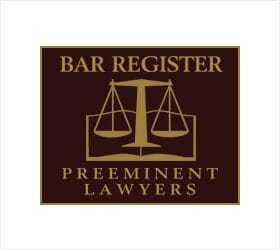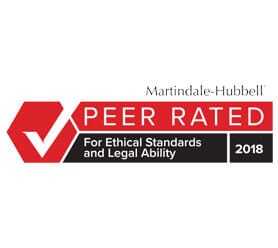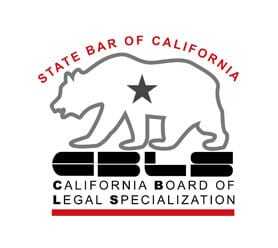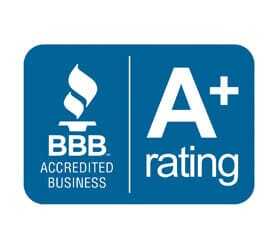



“White-Collar” crime is a catchall name given to a category of crimes that, by and large, all deal with “fraud.” By definition, they exclude all violent or assaultive- type crimes. Because in today’s modern digital-everything world, most wire fraud and mail fraud cases cross state and often international lines, they are almost always prosecuted by the federal government. “White-Collar” crimes include “access device” (credit cards, debit cards, pin numbers) fraud, wire fraud, mail fraud, mortgage fraud, fraud, healthcare fraud, passport fraud, immigration fraud, income tax evasion fraud, and every other possible monetary scam you see and read about in the newspaper and on the Internet.
A key threshold in all “White-Collar” federal prosecutions is the necessity of the Government (“Government always meaning the plaintiff, United States of America, acting through an Assistant United States Attorney, who prosecutes all federal crimes throughout the 50 United States) to prove the accused participated in “. . . A scheme, artifice or device to obtain money, property, and/or services through deception, false information, etc…”
“Healthcare fraud” is usually committed by a healthcare professional by submitting false and/or fraudulent billings to Medicare (or even Medi-Cal in California as the federal government pays a portion of the benefits paid by Medi-Cal) for healthcare services that were either not rendered or, if rendered, not necessary or reasonable. The idea for the healthcare professional here is to receive money from the government by using his/her degrees and state issued license(s) to practice medicine (or other health-care related activities, such as psychologists, nurses, state licensed caretakers, etc.) without performing the healthcare related service for which they billed the government.
Most federal prosecutions involving mortgage fraud, bank fraud, passport fraud, immigration fraud and various other types of federal fraud offenses are based upon a person who “. . . . knowingly and willfully makes or causes to be made any false statement or representation of a material fact in any application for any benefit, monetary gain, services or property. . . .”
Most passport fraud prosecutions are based upon a person applying for the United States passport containing false information concerning the applicant’s name, date of birth, Social Security number or other pertinent, vital information. . . . . ” Here, the applicant obviously leaves out the true information because the applicant believes that a passport will not be issued if the applicant stated the truth. Otherwise, there would be no reason to make “false statements.”
Most access device prosecutions are based upon the person suspected of this offense using somebody else’s name or other personal information, such as her Social Security number, driver’s license number, photograph, fingerprints or birth certificate to obtain credit or debit cards in another person’s name. Obviously, the person engaging in this type of activity either has no credit and wants to use somebody else’s credit to acquire property or services or, much more likely, the person uses somebody else’s personal information because the perpetrator has no intent to ever pay for the property or services.
Most all wire and mail fraud cases are based upon some type of a scheme whereby the alleged wrongdoer receives money or services either through the mail, wire transfer of money, FedEx or UPS based upon fraudulent material misrepresentations and/or promises.
Having tried federal criminal cases since 1970, depending upon the particular, unique facts of each individual given case, most often Mr. Shemaria hones in on the Government’s inability to prove the required element of “specific intent to defraud.” Without being able to prove “specific intent to defraud,” the Government cannot prove its case and because the defendant is always “innocent till proven guilty” (in every state and federal court throughout the United States), a jury must acquit, or in the event a jury convicts in error, the federal judge hearing the case should, either grant a judgment of acquittal at the close of the Government’s case, or after a jury verdict if the criminal defense attorney files the appropriate motion for judgment of acquittal.
Because this is totally unlike most states’ (like California) criminal court procedures, somebody accused of a federal crime in federal court had better have an experience federal criminal defense attorney, such as Joe Shemaria, calling the shots! In the event the jury wrongfully convicts, never expect a federal judge to simply intervene and act as a “second chair” defense attorney– that is not the job of the federal court judge, or any other judge for that matter. If your criminal defense attorney doesn’t know the Federal Rules of Criminal Procedure like the back of his hand, you are in very serious trouble and skating on thin ice, even though you may be totally innocent of committing any federal offense.
The toughest thing for the federal prosecutor to prove in a white-collar crime case is the necessary “specific intent to defraud” as this requires a subjective, not objective, view into the alleged wrongdoers state of mind at the time of the alleged crime. Before the real estate bust commenced in the latter half of 2007, it was not at all unusual for a prospective purchaser to go into the bank apply for a loan on a new home and have the bank’s lending officer actually suggest to the would-be purchaser that he borrow more money than what he is asking for! Being that real estate values were then largely believed to be always going up, not even the bank’s lending officer, let alone the applicant, believed that “hyping the figures” about the applicant’s income so he could qualify for a larger loan, ever dreamed they were committing a crime! In fact, this is basically “business as usual” that many of the big named mortgage banking companies throughout the United States.
Because “specific intent to defraud” requires a jury to look into the state of mind of the defendant to see if he had a “fraudulent intent” or, on the other hand, just had high hopes and largely relied upon the advice of others (oftentimes, including the bank’s lending officer), depending on the unique circumstances surrounding the application and underwriting process of the loan, these cases oftentimes offer a defendant an excellent chance of acquittal.
If you are either under investigation for, or charged with a federal “White-Collar” crime, you have to be an absolute gambler to hire an attorney who does not have the experience of having actually tried a white-collar, or at least some other federal felony offense, in United States District Court! That would be like the equivalent of going to a dentist who has a general practice looking for an extraction, replacement and capping procedure.
Call 310-278-2660 Today For The Tough Defense You Need





9171 Wilshire Blvd
Suite 500
Beverly Hills, CA 90210
Beverly Hills Law Office Map